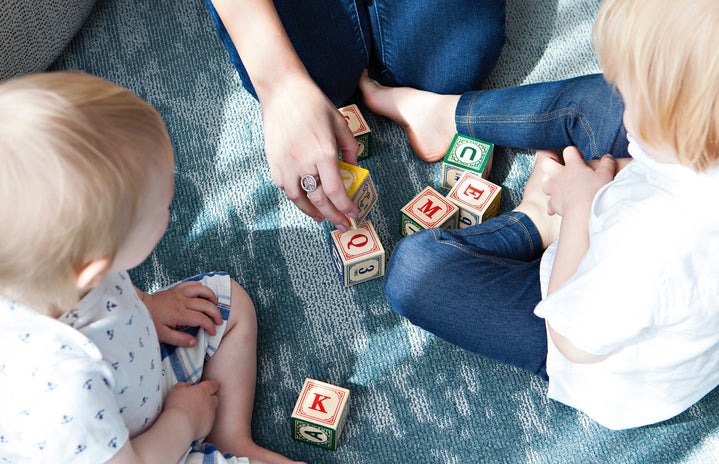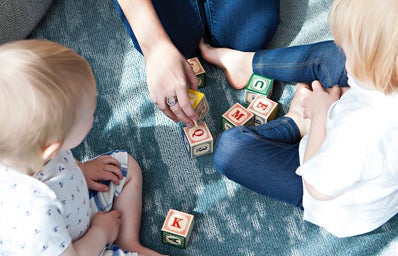It is hard to believe that a place like Iceland exists. Having visited last summer, I can vouch for the stunning natural beauty, rich history, and strong and unique culture. I spent seven days in awe of volcanoes and glaciers, lamb hot dogs and rye bread ice cream, and the friendly, open-minded locals. One of the more peculiar facets of Icelandic culture — to foreigners, at least — is its naming system, both for given names and surnames.
Icelanders do not typically have family names; as of 1925, the creation of family names is outlawed. (A few families in Iceland have retained a family surname throughout generations, including former Prime Minister Geir Haarde.) Instead, surnames are constructed using the child’s father’s name and a suffix pertaining to their gender, –son (son) or –dóttir (daughter). For example, a boy whose father is named Jón would have the surname Jónsson (“Jón’s son”). His sister would be Jónsdóttir. This naming tradition was previously utilized in all Scandinavian countries, but has only persisted in Iceland (likely due to its geographic isolation).
I’m sure at this point, a list of questions pops into your mind. Iceland is a socially progressive country: What if a person is non-binary? What if two women have a child together? To answer the former, in 2019, parliament passed the Gender Autonomy Act, which allows Icelanders to legally register as neither male nor female. These individuals will be permitted to use the gender-neutral suffix –bur (child) in their surname. As for the latter, when a child has no father (for a variety of reasons), a mother’s first name may be used in the surname. Additionally, some Icelanders choose to have two surnames, one for each of their parents.
So, what happens when Icelanders get married? In terms of names, nothing. Icelandic citizens are not permitted to change their surname as a result of marriage. If an Icelandic expatriate marries a foreigner and takes that person’s name, they must return to their maiden name if they move back to Iceland.
I realize that you are all waiting with baited breath for an explanation of this supposed naming committee. The Icelandic Naming Committee is 100% real, and works exactly how you would expect. When couples choose a name for their child, they can consult a list of pre-approved names for males and females. Any name that has been previously used in Iceland is allowed (as long as it corresponds in gender, which we will discuss soon). If a couple chooses a name that has not yet been approved, it must be submitted to the committee for review.
What criteria determine whether a name is approved or denied? The committee follows three basic tenets:
-
The name cannot cause the person harm or trouble. (Unfortunately, I must report that Satan was not approved.)
-
A person’s name should reflect their gender; boys should have boy names and girls should have girl names.
-
The name must follow the rules of Icelandic language and grammar.
The second rule has come under fire in recent years with the advancement of trans and non-binary rights. The committee has become more lenient in approving names that do not appear to correspond with a person’s gender. For example, in 2013, the name Blær was approved for a female, despite it being a masculine noun. The child’s mother had read an Icelandic novel in which Blær was a female character, and had vowed to name her first daughter Blær.
So, does that mean an Icelander could name their child … I don’t know … Collier? Probably not. (Definitely not as is.) The choice of name would have to be submitted to the committee to review and tested against the three rules.
Collier immediately fails the Icelandic language test. Icelandic does not contain the letter C; the initial sound in my name would have to be made with a K. Even with this change, the name is incompatible with Icelandic noun gender rules. Since I identify as female, my name should have an ending which would denote it as a feminine noun. Those endings are typically –a, –ing, or –un, not –er or –ier. My knowledge of linguistics extends about as far as Professor McWhorter’s intro course, so I cannot gauge with certainty how my name would translate into Icelandic. My best guess would be Kolja. If anyone reading this moves to Iceland and has a child, please submit this name for review.
View this post on InstagramA post shared by Hörður Kristleifsson ◆ Iceland (@h0rdur) on Dec 3, 2019 at 12:24pm PST
In just a week, Iceland became one of my favorite places on earth. Of course, I loved the rivers and hot springs: beautiful and practical, as Iceland relies 100% on renewable energy sources. I adored the laidback energy, the abundance of coffee shops, and the cool — but surprisingly moderate! — weather. However, what really struck me were the quirky traditions that form the foundation of Icelandic culture. Every Icelandic name has a meaning, a history, a story; while I’m glad my last name isn’t Kevinsdaughter, I appreciate the time and care involved in preserving a unique culture through names.


